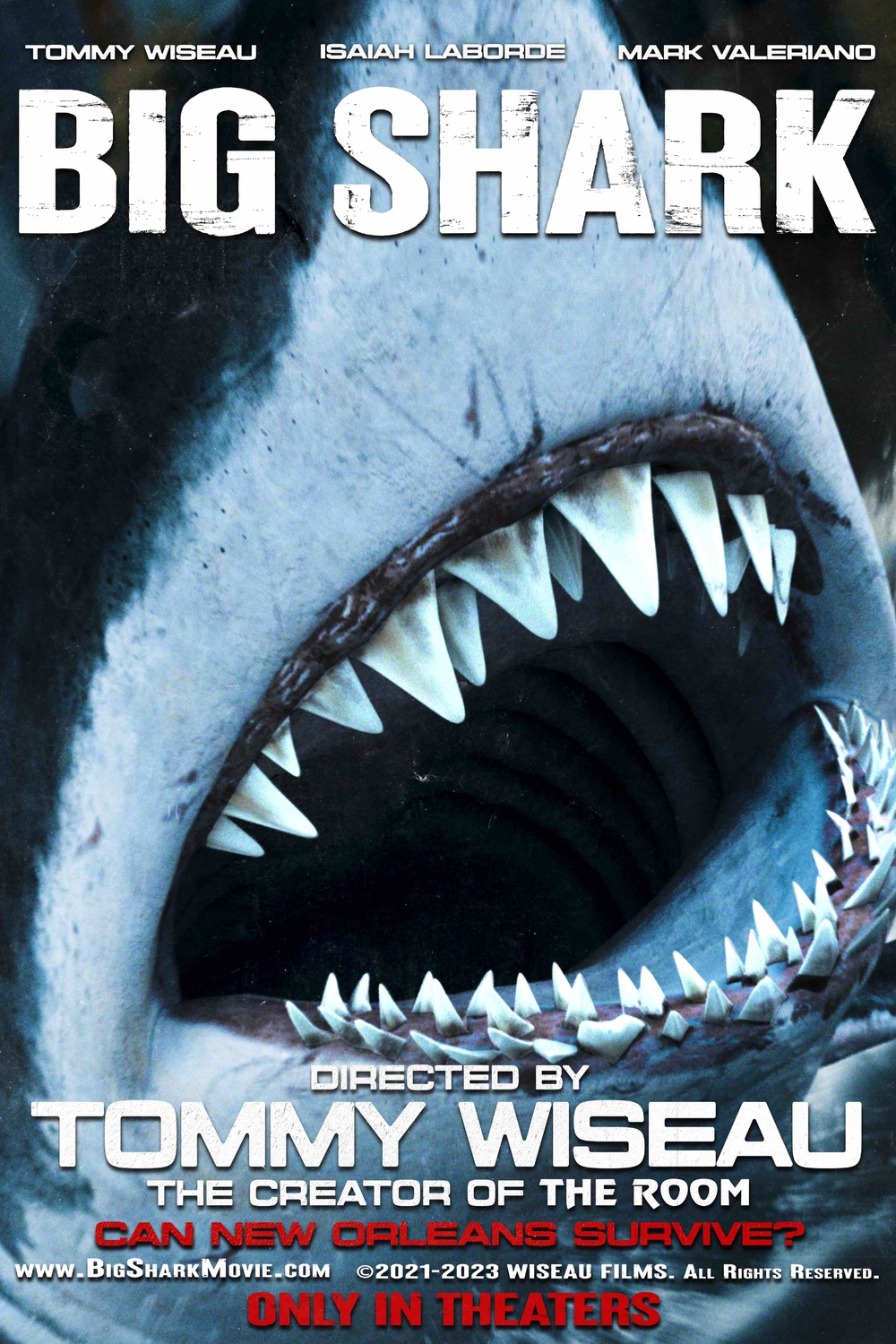-
-
Par kluseba le 4 Mars 2024 à 21:27
Dear readers,
It's March Break and spring is coming much earlier this year than anticipated. This playlist with ten brand-new songs should give you a healthy dose o energy during a walk, run or hike in the beauty of nature. The bands and their members on this playlist hail from Canada, China, England, Germany Hungary, Japan, Russia, Scotland and the United States of America. You will get to hear alternative rock, folk metal, heavy metal, idol pop music, melodic death metal, power metal and progressive death metal. Click on the following link and crank up the volume to celebrate good times!
Kluth - Best of February 2024 - playlist by Klusebator | Spotify
1. Ladybaby - Gotcha Nippon!
2. Unleash the Archers - Green & Glass
3. Meanstreak - Oh Father
4. Гран-Куражъ - Лети
5. Job for a Cowboy - Grinding Wheels of Ophanim
6. 郁 (Die from Sorrow) - 盛大的狂欢 (Grand Carnival)
7. Alestorm feat. Patty Gurdy - Voyage of the Dead Marauder
8. Takida - Sacred Spell
9. Blaze Bayley - The Broken Man
10. TriDent - Bite the Bullet
-
Par kluseba le 28 Février 2024 à 09:54


Mottomo Kiken na Yuugi / The Most Dangerous Game (1978) - The First Tale of a Brutal Anti-Hero Who Takes No Prisoners - 7/10

Mottomo kiken na yuugi, internationally known as The Most Dangerous Game, is the first film in a trilogy about hitman Narumi Shouhei. This character is a rough anti-hero who is addicted to gambling, has debts of several million yen, is constantly drinking alcohol and smoking cigarettes and often sleeps until the late afternoon. He gets hired by the chief executive officer of an important company that is starting to work on a national air defense project. One of the company's most important managers has been kidnapped and the chief executive officer believes that another company is responsible for the crime. Narumi Shouhei's task is to free the kidnapped manager and eliminate the leaders of the other company and their hired guns.
This movie might not sit well with contemporary conservative audiences. Narumi Shouhei is drunk half of the movie, smokes one cigarette after another, insults employers and villains alike, is only focused on monetary rewards and is particularly rough with his opponents as the body count rises rather drastically as the film progresses. In one scene, Narumi Shouhei tries to get the attention of a ruthless manager and decides to break into his apartment, interrogate and torture his girlfriend Sasaka Kyoko and then proceeds to rape her while the upset manager is listening on the phone. Interestingly enough, Sasaka Kyoko ends up feeling attached to the brutal rapist as she takes care of him and worries about his fate. Such script elements ask for much tolerance, suspension of disbelief and open-mindedness to put it mildly.
Another significant element that needs to be pointed out is the lighting technique used throughout the film. If you prefer a realistic movie, then you will have several shaky scenes filmed with handheld cameras as you won't see what's exactly going on in some scenes portraying nightly infiltrations and chaotic fighting sequences. If you are looking for an artistically appealing movie with calm and clear shots, that element will significantly decrease your enjoyment of that feature.
One must confess that the rude anti-hero stands out with his pitiless behaviour and won't leave any viewer neutral or bored. There is even a certain dark humour to some of his gestures that blends in refreshingly in an otherwise brutal film. Other positive elements include the short, precise and cool dialogues, the intriguing settings including an abandoned asylum and the brutal extended fighting scenes that still keep viewers on the edges of their seats in this day and age. Let's not forget about the moody jazz soundtrack that blends in surprisingly well, even for audiences who usually don't care about jazz music at all like myself.
At the end of the day, Mottomo kiken na yuugi or The Most Dangerous Game is certainly a product of its time that might not have aged very well for more conservative audiences but might appeal to cineasts intrigued by Japanese gangster movies of the seventies. On the movie's strong side, you will get a charismatic anti-hero, a healthy dose of black humour, cool dialogues, atmospheric locations, bloody fight scenes and a jazzy soundtrack. On the negative side, some scenes are extremely tough to digest, the shaky camera work might induce headaches and the lighting technique used throughout the film is below average to be generous. I have recently been watching this film with a good friend and we have both been greatly entertained but we also think that the other two entries in the trilogy offer an overall more elevated quality.
Satsujin Yuugi / The Killing Game (1978) - Only a Tough Guy Survives When Past and Present Collide - 8/10

Satsujin yugi, internationally known as The Killing Game, is the second film in the trilogy about ruthless hitman Narumi Shouhei. In this particular movie, Narumi Shouhei has pulled off a spectacular hit on a mobster and has gone into hiding for five years. His return to Tokyo is quite miserable as his apartment has fallen into disrepair, he has significant financial struggles and he is bothered by an old friend who has developed a creepy obsession with him. To make matters worse, Narumi Shouhei encounters two women he spared during his legendary hit. The lover of his target has become the owner of a hostess bar, now dates another brutal mobster and hasn't learnt anything from her mistakes from the past. The daughter of his victim has become an employee of the hostess bar who is forced to drink alcohol, consume drugs and offer sexual pleasure to her misogynistic customers. Narumi Shouhei is soon haunted by his past as two pitiless mobsters hire him to murder one another. Narumi Shouhei must play a most dangerous game yet again to walk the thin line between both employers and keep the ladies and his friend save in Tokyo's pitiless underworld.
This second entry in the trilogy is an improvement over the first film. The mixture of past events and present repercussions is pulled off with emotional depth and clever details. The protagonist's character gets some additional development as his present struggles show the human being behind the brutal hitman. The way women are portrayed in Tokyo's underworld is gripping as their issues are shown in a cold, depressing and realistic way. New topics such as friendship, loyalty and pity are being dealt with throughout the film.
This movie however also brings back all elements that made the predecessor stand out. The action scenes are brutal, entertaining and extended. Cool dialogues can be found from start to finish. The protagonist's raw side still shines through on many occasions. The realistic settings bring Tokyo of the late seventies to life in an authentic manner. The moody yet playful jazzy soundtrack blends in wonderfully.
Few things could be criticized about this strong action-thriller and gangster movie. The film might rehash a few too many elements from its predecessor to stand on its own. The plot is only of an average quality and overall predictable for genre experts.
Despite those minor flaws, Satsujin yugi or The Killing Game is an improvement in the noteworthy gangster film trilogy. This movie convinces with a balance between past and present events, profound character development, intriguing female side characters who are fleshed out decently and several new themes such as friendship, loyalty and pity while still offering intense action scenes, cool dialogues, a rough protagonist, realistic settings and an enjoyable soundtrack.
Shokei Yuugi / The Execution Game (1979) - A Deep, Intellectual and Philosophical Conclusion to an Underrated Gangster Movie Trilogy - 9/10

Shokei yuugi, internationally known as The Execution Game, is the third and last part in a movie series about pitiless contract killer Narumi Shouhei. This is also the greatest effort in the entertaining trilogy. The story is more personal than ever before this time around as Narumi Shouhei gets trapped by a group of vicious gangsters who torture him and force him to orchestrate a hit on one of his colleagues.
This movie convinces on numerous levels. First and foremost, the movie's character development is absolutely outstanding. Lead character Narumi Shouhei has become somewhat disillusioned by his profession. He seeks a stable romantic relationship, is haunted by bouts of isolation and behaves in a more conscious, philosophical and responsible way. His target is Okajima Yoshikatsu, a veteran among hitmen who wants to retire from the dangerous job, leave his past behind and start a new life abroad. The protagonist's mysterious lover is Kano Noako who works for a group of ruthless criminals to seduce men and put them into dangerous or even deadly situations. She starts regretting her actions, desires to organize changes in her life and wants to break free. The relations between these three key characters are fascinating throughout the film.
An honourable mention goes out to the nameless side character who runs a watch repair shop. She is fascinated by Narumi Shouhei's sophisticated watch and his cool manners but when she finally has the courage to ask him out on a date, the lonesome hitman who would have initiated such an invitation himself in the past now decides to turn her down because he realizes that his identity, lifestyle and past might put her at risk. These gradual interactions between the young lady and the seasoned hitman throughout the movie show the protagonist's development best.
Another element that has changed in comparison to the two predecessors are the locations. While the previous films take place in busy downtown areas with hostess bars, this movie shows Narumi Shouhei living in a quiet suburb of Tokyo, walking relaxedly to the watch repair shop and taking his lover on a beautiful drive to the coast. These settings show the protagonist's calm, isolated and yearning character traits.
The film's opening is another noteworthy element that stands out right from the start. While the two predecessors always show Narumi Shouhei in complete control of even the most complicated and dangerous situations, things take a different turn here. The contract killer is seduced and set up by a mysterious woman he barely knows, he is then brutally tortured by a group of ruthless criminals and when he finally manages to free himself, the criminals capture him again and explain that his temporary escape was actually a test planned by the organization. It's fascinating to watch the protagonist deal with this unexpected loss of control and its consequences.
The movie's ending is equally memorable as the protagonist's character development in this moody conclusion of the trilogy comes full circle. Without giving you too many details, the protagonist offers one of the antagonists a choice rather than imposing his views by force. This more mature, responsible and thoughtful procedure underlines that the character who has been going through changes throughout the film has now found his new identity. It's only fitting that the trilogy concludes this way as the protagonist decidedly moves on with his life.
Needless to say that despite all these intriguing new elements, The Execution Game still remains an outstanding action-thriller. The protagonist gets seduced, tortured and exploited. Up next, he investigates, infiltrates and executes his orders with deadly precision. Narumi Shouhei finally turns against his oppressors in a manner that combines violence with intellect. This swiftly-paced gangster movie has stood the test of time and should still keep viewers on the edges of their seats after all these years.
To conclude, the third and final film of the Game Trilogy reminds me a little bit of the third and final film of The Godfather trilogy. In both cases, the atmosphere is moody, the lead character is going through changes and philosophical elements become as important as the business side of organized crime. Many critics find the third and final film of The Godfather trilogy the worst but it has always been my personal favourite. For very similar reasons, The Execution Game is also my favourite entry in this trilogy as it deserves to be revisited time and again. If you are only looking for a brutal gangster film, then the two predecessors might please you much more but if you like action-thrillers with emotional, intellectual and philosophical depth, then this wonderful conclusion to the trilogy delivers in spades and still deserves recognition and respect in this day and age.
-
-
Par kluseba le 19 Février 2024 à 18:42

For years, fans of Tommy Wiseau have been waiting for the release of Big Shark. A trailer was dropped, then the project seemed to be on hold, up next it appeared to be canceled, suddenly a new trailer dropped and the film was finally released last year. It was a unique experience watching this film at Ottawa's legendary Mayfair Theatre with much crowd participation and a few drinks beforehand. This is the exact attitude you need when watching Big Shark. This film is so absurd that it requests a complete suspension of disbelief to take this feature humorously. Otherwise, you will get frustrated by the movie's excessively weird characters, terrible dialogues filled with stunning grammatical mistakes and paper-thin plot that doesn't make any sense whatsoever.
To keep it short, this movie revolves around three firefighters who spend their time partying, hitting on women and drinking booze every single day. One day, one of these firefighters named Patrick claims to have spotted a thirty-five-foot shark in a muddy lake that he calls a river for unfathomable reasons. His friends don't believe him but soon a gigantic shark surfs through New Orleans on randomly appearing rivulets of water. For vague reasons, the three firefighters decide to kill the shark as the military and police don't intervene at all. They decide to catch three pigs as bait for the shark that they ultimately decide not to use. Instead, they get a dead pig at a butcher's place, fill it with blood and dynamite and launch it on a rubber dinghy to kill the shark.
For those who are not familiar with Tommy Wiseau's work yet, there are several reasons why people enjoy watching his movies. First of all, his movies are so uniquely bad that they don't compare to anyone or anything else. Even other controversial directors look like experienced geniuses next to Tommy Wiseau. Up next, these movies are so hilariously bad that they are genuinely entertaining as viewers will come back revisiting them by remembering their favourite worst scenes, plot twists and awkward dialogues. The characters in his movies stand out because they act entirely irrationally and sometimes change their attitudes, behaviours and mindsets from one minute to the other. The technical aspects of the movies also leave a lot to be desired as the shifts in the sound department are excessive, lighting work at times blinds the audience and the settings offer numerous awkward choices.
You might now wonder why people watch a movie like Big Shark that sounds bad on paper and is actually even worse than you expect it to be. This movie offers unparalleled escapism and invites for a light-hearted fun ride that is best enjoyed with a few drinks and friends. I have watched The Room time and again and would watch it again in a heartbeat. Big Shark is even more consistent in its absurdity and thus appeals even more to me. I'm prepared to return to the cinema to watch this film again, I would purchase it physically to enjoy it at home and I have written this review to promote this weird masterpiece to the entire world.
For those who are already familiar with the works of Tommy Wiseau, this movie is everything you expect it to be and might even exceed your expectations as you will be crying tears of joy while watching this unbelievable cinematic accident.
As for Tommy Wiseau himself, I have nothing but genuine respect for him as I sincerely admire his resilience at creating movies despite innumerable obstacles. This man deserves recognition because he is living his dream and has offered hours of comedic entertainment to fans from all around the world. I would like to encourage him to continue doing his work as long as he wants to as I'm willing to give all of his releases a shot.
On a closing note, I would rather watch a ridiculous but entertaining, funny and sympathetic movie such as Big Shark than an intellectual but depressing, overlong and pretentious feature such as the heavily overrated Anatomy of a Fall.
Final Rating: 6/10 points
 Suivre le flux RSS des articles de cette rubrique
Suivre le flux RSS des articles de cette rubrique



























